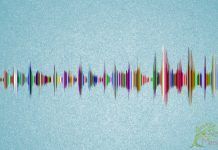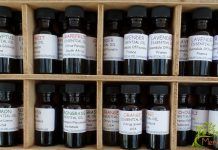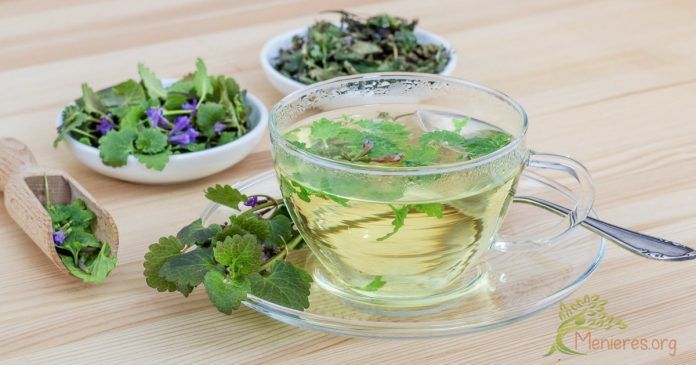
Meniere’s Disease is a rare, incurable disorder of the inner ear. Only .2% of the population receive a diagnosis of this condition. Doctors sometimes misdiagnose a person who has Meniere’s because its symptoms mirror those of many other disorders. One example is people with an unknown food allergy might feel dizzy and experience tinnitus often until they realize it’s something they ate and eliminate that from their diet. With that in mind before you can even consider herbal treatments or supplements for Meniere’s, you need to make sure your symptoms are not impostors.
What Causes Meniere’s Disease
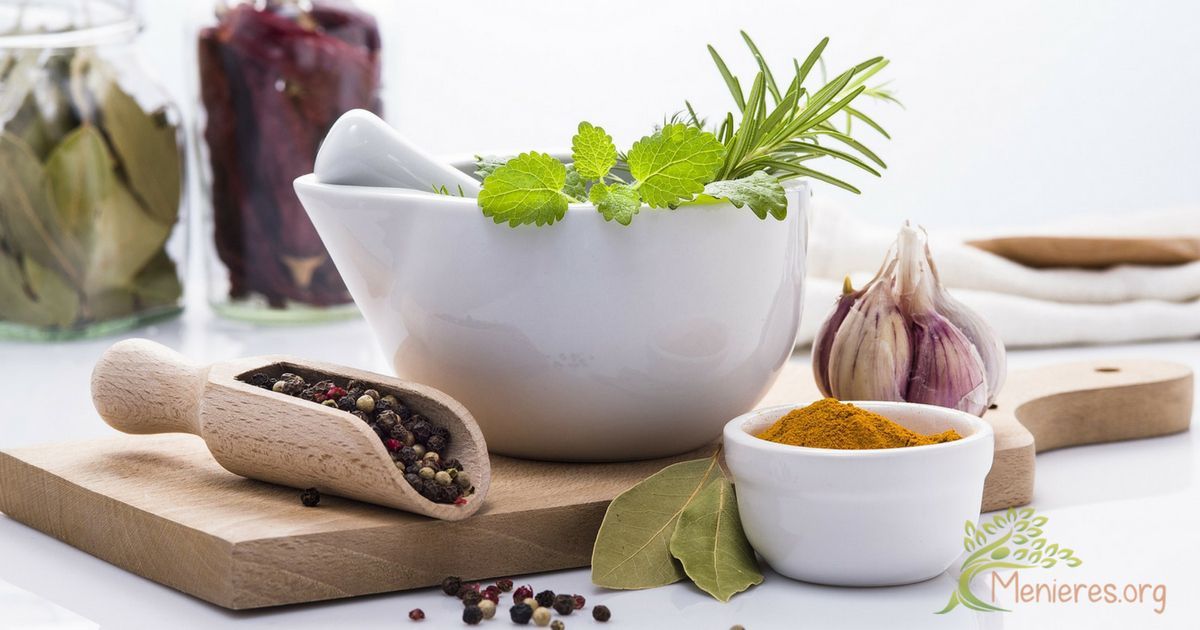
It would be much easier to offer herbal treatments for Meniere’s if you know the cause. Meniere’s can occur due to one, or several, contributors. We know that the inner ear regulates our balance. We also know ear infections mess up our stability. However, an autoimmune disorder or head trauma may be the underlying issue for your Meniere’s symptoms.
Dietary Causes:There has been a growing field of research for Meniere’s that looks to potential dietary causes. So, while you’re looking for herbal treatments and supplements, you can also learn what to avoid. These include:
Aspartame: Seems to create Meniere’s like symptoms in some people. It’s also a contributor to depression.
MSG: Shows up in a lot of foods you may not expect. Anything that contains Sodium Caseinate, Plant Protein Extract, Hydrolyzed Vegetable Protein, Yeast extract or corn oil also contains MSG. Other products that usually contain MSG are food flavorings, stocks, malt extract and many seasoning blends.
Salt: Since treatments for Meniere’s seek to stabilize fluid in the inner ear, it makes sense that you should watch your salt intake (avoiding water retention).
Herbs, Vitamins, Minerals and Other OTC Supplements for Meniere’s Symptoms
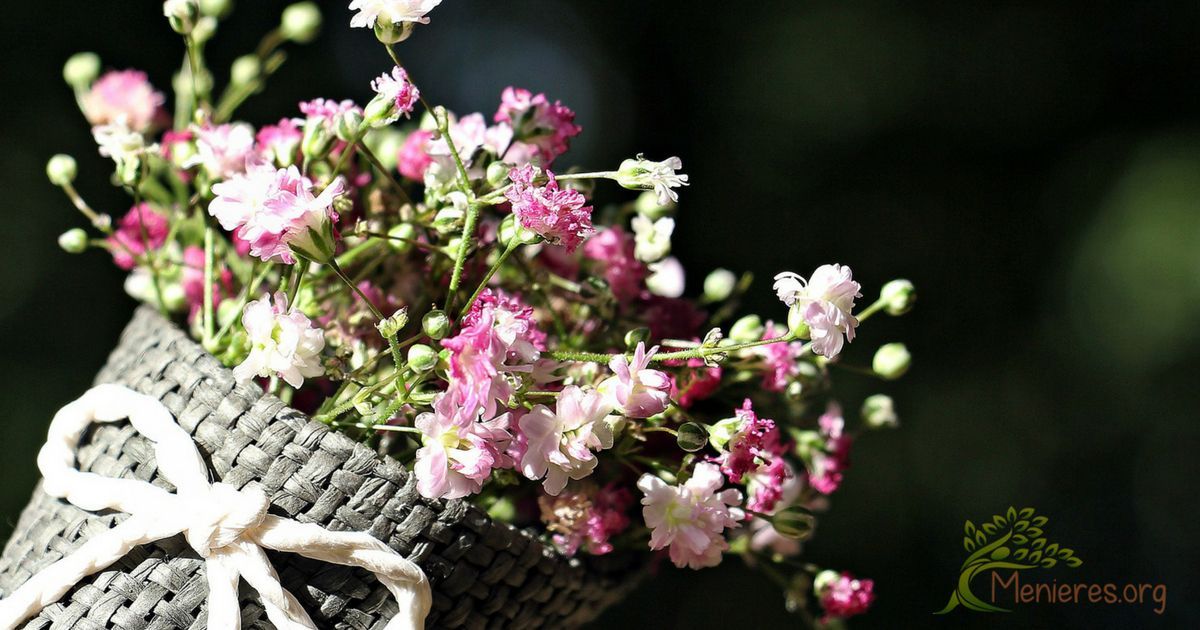
As you research, you will come across a lot of divergent information on vitamins and other supplements for Meniere’s so please read with caution. We are not physicians. If you are interested in trying any of these, you should always consult with your primary or the doctor following your Meniere’s Disease.
Alfalfa: One of nature’s powerhouses, Alfalfa improves overall cardiovascular health. It contains essential minerals like iron, zinc, and magnesium.
Alpha Lipoic Acid: This targets Meniere’s progressive hearing loss. Herbs aren’t the best source for this supplement, but you can look to foods like spinach, peas, and tomatoes.
Calcium: The hope with calcium is supporting the bones in your inner ear. Herbs that contain calcium include savory, dill, oregano, mint, sage, celery seed, and parsley.
Chromium Picolinate: Moderates blood sugars. High or low blood sugar often leads to Meniere’s-like vertigo. Herbs that contain this element include yarrow, nettle, catnip, and wild yam.
CoQ10: Recommended for improved circulation and oxygen use. Parsley is the go-to herb for this supplement. ”
Dandelion Dandelion is a natural diuretic that may help keep the levels of inner ear fluids more stable for Meniere’s patients. You can consume it as a tea. Warning: those with ragweed allergies may have a sensitivity to dandelion as well. If this is the case, you might try black caraway, hibiscus tea, ginger, and parsley.
Echinacea: Since Meniere’s Disease may have links to autoimmune disorders, echinacea acts to boost the immune system.
Ginkgo Biloba: Some find this herb helps with both vertigo and tinnitus.
Ginseng: For motion-sickness-like symptoms that occur with vertigo.
Lipase enzyme: Some people find this supplement helps with dizziness. Oats contain this enzyme.
Lysine: Lysine has many roles in your body including connective tissue repair, helping absorb calcium and reducing anxiety. Herbs containing Lysine are lavender, rosemary, amaranth, and basil.
Manganese: Some studies show that Manganese deficiencies can cause Meniere’s symptoms or exacerbate them. You can get Manganese through herbs like ground cloves, saffron, ginger, cardamom, and cinnamon.
Mint: Mint is a good source of Lysine . Some of Meniere’s patients use this as an herbal treatment for nausea in tea form.
MSM: This is a sulfur compound that some say heals damaged tissues and offsets allergies. Herbs other than garlic are not high in MSM but you can get sulfur from foods like kale, cabbage, broccoli, turnips, and onions.
Niacin (also called Vitamin B3) improves blood circulation. The top five herbs for Niacin are paprika, ginger, red pepper, fennel, and sage. These have at least 25% of the recommended daily intake for Vitamin B3, with paprika having twice that.
Noni: Used in juice form, this fruit seems to help with hearing loss. Note: Very sour!
Vinpocetine: This increases blood flow to the inner ear which may offset vertigo. This comes from the Periwinkle plant but it’s easiest to find it in commercially-prepared products.
Vitamin B12: Used for tinnitus. Your herbal treatment options include alfalfa, dandelion, and hops.
Vitamin C: This antioxidant fights inflammation. Some of the best culinary herbs with high levels of Vitamin C are parsley, chives, basil, and thyme.
Wheatgrass: Rich in protein and amino acids, wheat grass can boost your immunity.
Other Non-Invasive Home Treatments for Meniere’s
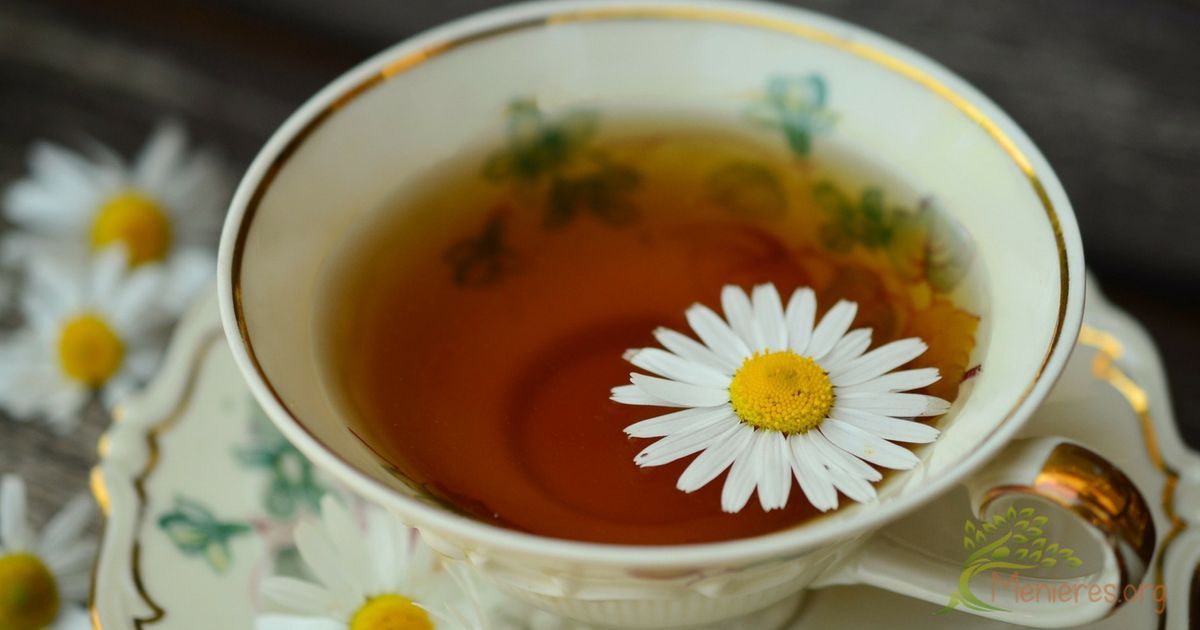
Once you find herbal treatments which help with Meniere’s you may also want to consider other help which doesn’t require going to the doctor’s office:
Acupressure
There are several points on your body you can push using steady pressure on for vertigo and faintness. For vertigo and nausea, put your thumb about 1-inch down from your wrist, at the center of the top of your head (in a direct line with your ear). Also, place your thumbs at the base of your skull on both sides, behind both earlobes, right beneath your nose (for dizzy spells), or at the bottom of your foot in the depression just below the ball and the top of your foot between your big and second toe. The latter pressure points are also good for headaches. There are more but the latter pressure points are ones you can reach with ease. The recommended time for maintaining pressure is one minute.
Breathing Techniques
Feeling anxious or stressed out? Take a deep cleansing breath in through your nose and out through your mouth. Try using a three count–breath in deep to the count of three, hold it for a count of three then slowly exhale to the count of three. Speaking of three, repeat this at least three times for the best benefit. Use throughout your day as necessary.
Foods & Beverages
Try to keep your daily intake balanced throughout the day and mirror that approach throughout the week. Healthy options are always the best choice over empty calories. Also, watch out for edibles and beverages that have a high sugar content. Sugar, like salt, can cause changes in your body’s fluids. If you know you have food sensitivities, try to avoid those items in the diet for decreased symptoms or longer amounts of time between vertigo episodes.
Hearing Aid
While you have to go to the audiologist for this, many people with Meniere’s progressive hearing loss find a hearing aid helps with balance issues and overcoming the noise from tinnitus.
Environmental Aids
Two things you can control in your home are light and sound. Bright lights often bother Meniere’s patients as do sharp or loud sounds. These can be triggers for an episode. If you feel a headache coming on or start feeling shaky, turn down the lights and put on some soothing music or nature sounds for relaxation.
Also, because you are dealing with dizziness look around your space and make sure it’s as safe as it can be should you experience a Meniere’s drop attack. One example is replacing regular space rugs with a no-slip version.
Massage
For people who find their Meniere’s who experience triggers via head and neck movements, a good massage can make things feel much better. When you realize certain motions make you dizzy, you can start to move in different ways. Your neck might feel stiff or sore. That’s where massage comes in and it can be relaxing too.
Stress and Sleep
There is nothing worse for our bodies, minds, and spirits than stress. Meniere’s sufferers often experience stress and anxiety over the unpredictable nature of their vertigo attacks. That means that avoiding other stressors is vital to the best of your ability. Doing so lowers your risk for other problems like heart disorders and bad digestion.
Sleep is helpful for stress reduction. If you are not sleeping well, your anxiety levels increase, and you feel on edge. Maintain a good daily sleep routine. If you are having trouble sleeping, you can try various herbs that help with relaxation and calming. Just enjoy a tea made from chamomile, valerian, lavender, or lemon balm. Please check the labels to be sure you are getting a non-caffeinated product.
Supports
Anyone with chronic illness can benefit from a solid support system. That means educating your family and friends about Meniere’s Disease and the various herbal treatments you have chosen. They will need to know how to best help you when you have an attack to keep you safe and comfortable. You can sit with them and write out a plan that everyone can use for reference.
Beyond your immediate circle, consider personal counseling or group support. There are whole communities of Meniere’s patients online who are sharing ideas with one another. Hearing about their experiences can help as can having the ear of a professional for finding coping mechanisms.
Summing It All Up: Herbs and Supplements for Optimal Health
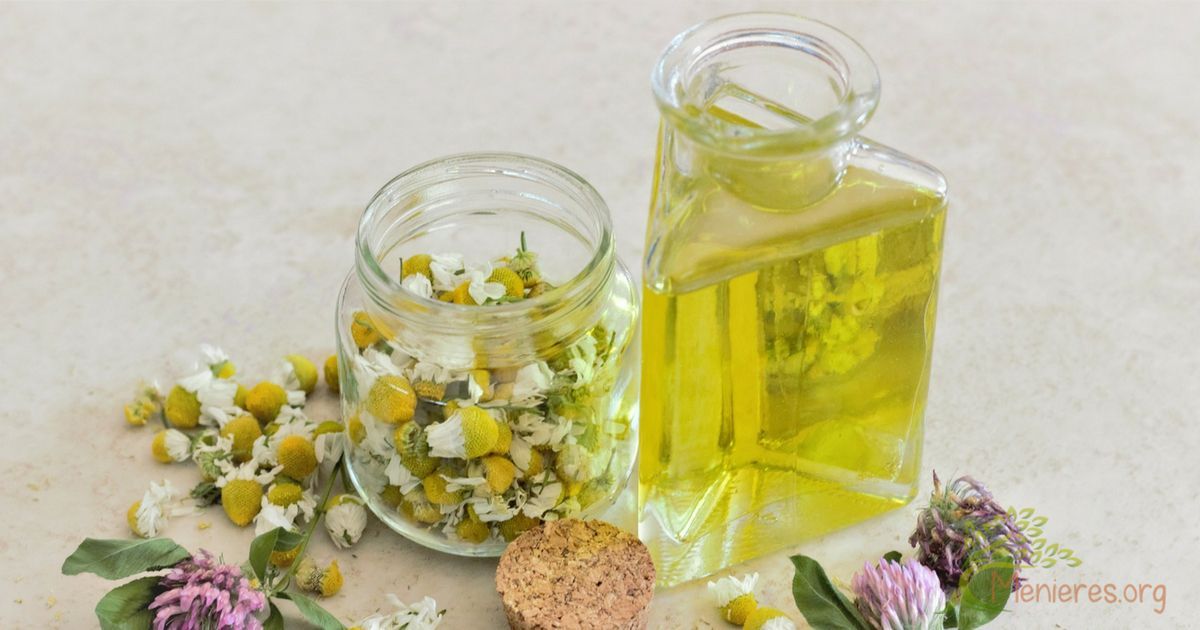
You already know from your doctor that Meniere’s has no known specific cause or cure. That doesn’t mean you are helpless. Finding herbal treatments and supplements is a great start for managing your condition. It may take time to find just the right combination that eases your symptoms or decreases the frequency of vertigo attacks. Once you do, however, it will have been well worth the time. These efforts can work along with your provider’s care plan to improve the overall quality of your daily life.

